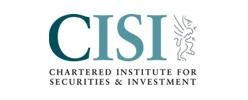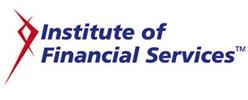"I have known David Henderson for seven years and during that time, he has had full control of my financial investment portfolio through retirement and the consequences of adjustment to widowhood. I have never had any cause to doubt his skilled advice and commitment. This has been delivered through a friendly and totally reliable relationship. I have regarded him as a trustworthy friend and in terms of the financial manoeuvres, his practical adjustments have (thus far in a volatile world!) all been safe and successful. He has been helpfully reassuring at times based on an extensive knowledge of theway the markets and global economy works I find this very educational. I have recommended his services to several friends all of whom have commented most favourably after his input totheir finances."
NHS Scotland Pensions
Most doctors and dentists rely on the NHS Pension Scheme to provide their main guaranteed pension benefits in retirement.
Over the last 15+ years we have seen significant changes to the different versions of NHS Pension Schemes available to members, which now encompasses the 1995, 2008 and 2015 Sections of the Scheme as it is applied in separate geographical locations.
This means pensions have become more complex, especially when combined with challenging pension tax regulations, which impact most doctors and dentists due to their level of income.
The NHS Pension Scheme has a vast number of members, and from time to time, mistakes will happen – given the different Schemes that an individual consultants, dentist or GP might participate in during their career. Therefore, it is important to get an update on your NHS Pension statement each year – the Total Rewards Statement – and review this to ensure that your benefits are on track for when you wish to retire.
NHS Scotland
Staff joining NHS Scotland are now automatically enrolled in the NHS Pension Scheme administered by The Scottish Public Pensions Agency (SPPA). http://www.sppa.gov.uk
Will the NHS Pension Scheme provide enough income for you to live on in retirement?
The last 10 years has seen significant changes to the NHS Pension Scheme – including Lifetime Allowance (LTA), Annual Allowance (AA) and Tapered Annual Allowance (TAA) – all impacting on more members.
It is therefore vital to review the benefits you anticipate from your pension on a regular basis.
- Does the NHS Pension Scheme still represent good value? (In our experience, the answer – in most cases – is ‘definitely’; but this should be reviewed in light of your personal circumstances.)
- A key consideration is when you plan to retire: is it still realistic to retire at age 60?
The impact of Lifetime and Annual Allowances
Over the past few years, the Lifetime Allowance has been reduced, and then surprisingly abolished with the Annual Allowance increased to £60,000. This is good news for pension members as they will retain more of their valuable pension benefits.
The Annual Allowance is the total pension contribution that can be made in a given tax year, including your own contributions and those made by your employer. Exceeding it will trigger a tax charge in your next tax return.
This means many more existing members of the NHS Pension Scheme may be at risk of further tax charges.
NHS Partial Retirement – 1995 NHS Section
From 01 October 2023 members of the 1995 NHS pension scheme can continue to work while receiving some of their pension benefits They can apply for partial retirement twice before fully retiring.
You don’t need to take a break or change jobs to take partial retirement. You can carry on working, but you need to reduce your pensionable pay by at least 10% for the first 12 months.
If you are considering partial retirement you must contact your employer.
What happens to the rest of my pension?
If you decide to withdraw less than 100% of your pension, the remaining amount will be left in your pension pot.
You can then continue to pay in and you will be able to access the rest of your pension when you fully retire.










